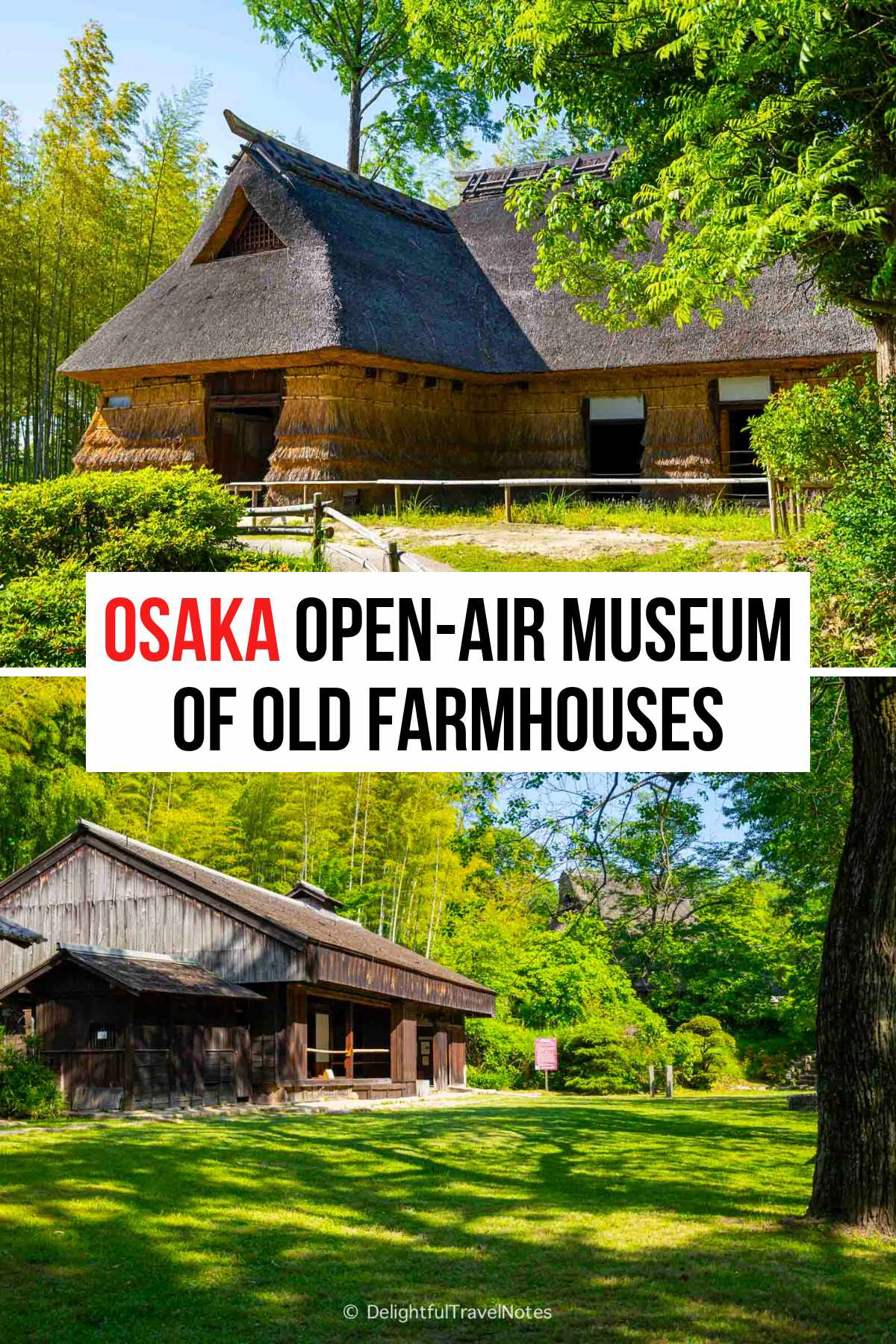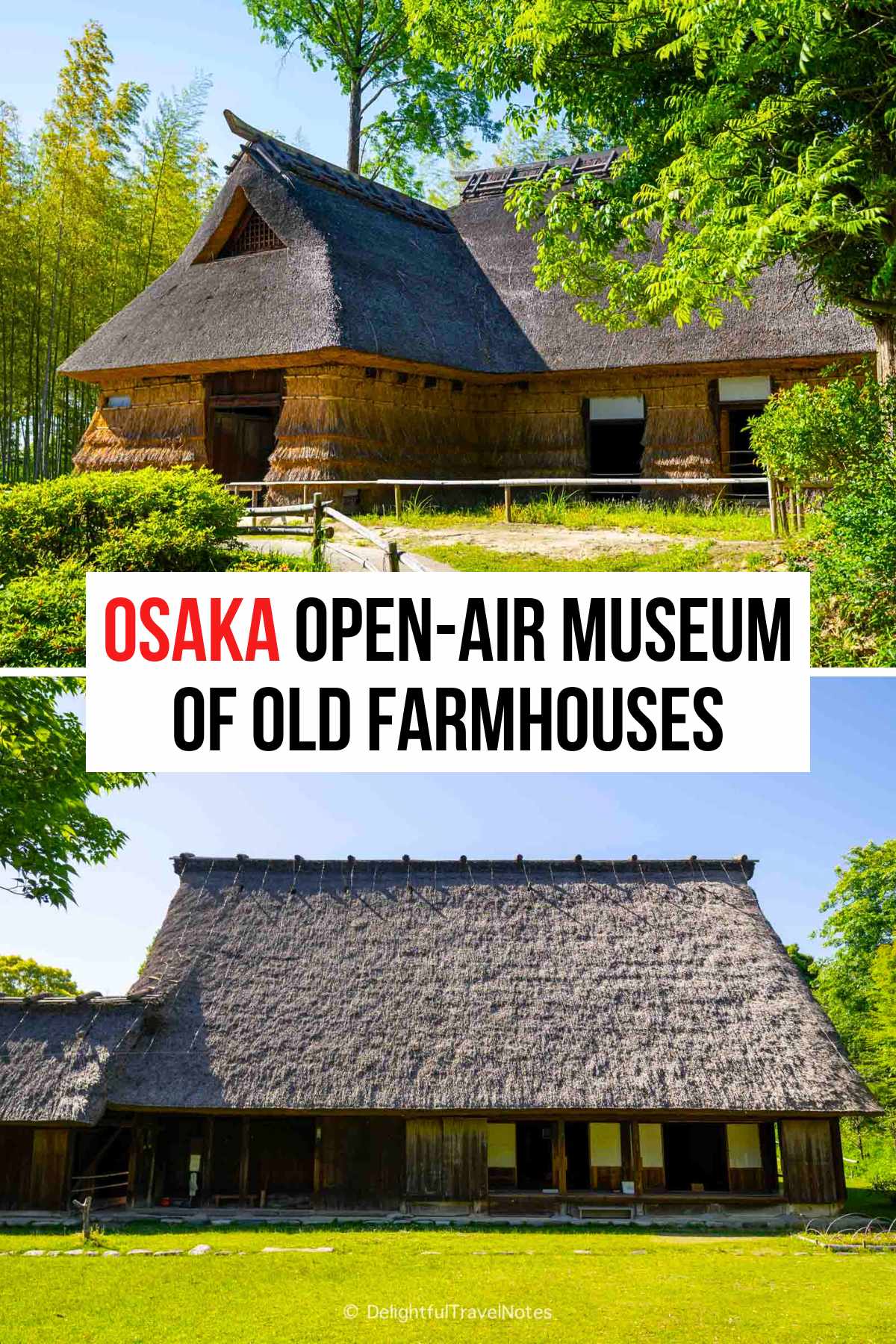Step Back in Time at the Open-Air Museum of Old Farmhouses in Osaka
The Open-Air Museum of Old Japanese Farmhouses in the northern part of Osaka is where you can see farmhouses built in the Edo period from all over Japan. Each house is relocated from their original location and provides a glimpse into lives, hardships and achievements of Japanese people in the old time. This place is less visited than other popular attractions in Osaka so it was a peaceful escape that we absolutely enjoyed.
This museum was the first on our list of things to see in Osaka as we loved the open-air concept after visiting the Hakone Open-Air Museum. The settings allow for integration with nature, creating a pleasant and scenic environment for visitors.
Quick Links
- Location: within Hattori Ryokuchi Park (Google Maps)
- Website: official website
- Hours: 9:30 am – 5:00 pm (last admission at 4:30 pm)
- Entrance fee: 500 yen for adults
How To Get There
The museum is not too far out from Osaka city center. Take the Midosuji Subway Line (the red line) to Ryokuchi-koen Station. We stayed near Umeda Station and the subway ride took about 15 minutes. Exit the station and walk for 15-20 minutes through Hattori Ryokuchi Park and you will arrive at the museum.
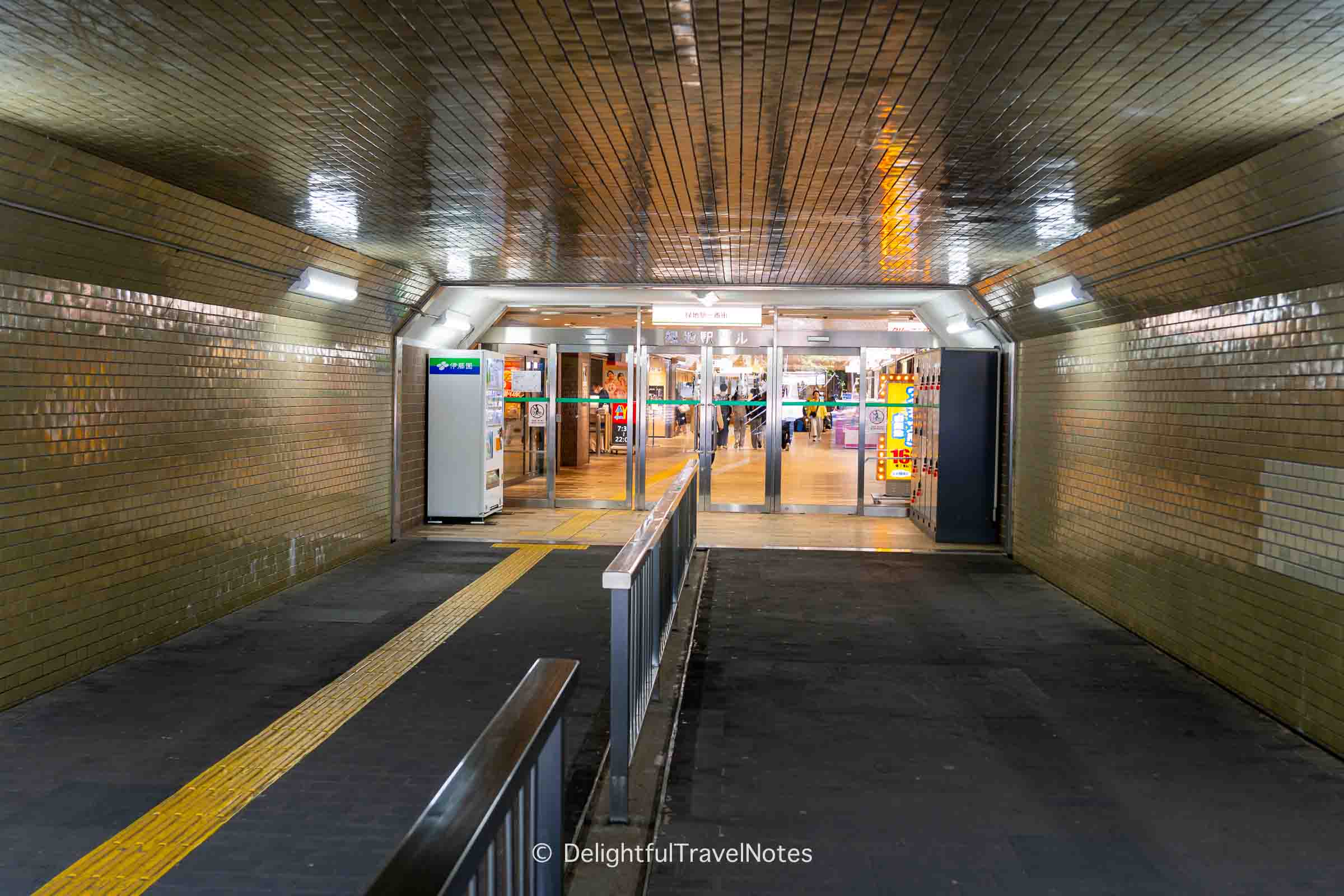
We exited the station through a short covered ramp that opened onto a pathway lined with shade trees. The soft chirping of birds created a serene and inviting approach to Hattori Ryokuchi Park. As we walked along, we saw a few locals strolling or cycling, adding to the peaceful ambiance. It felt great to leave the hustle and bustle of Osaka behind.
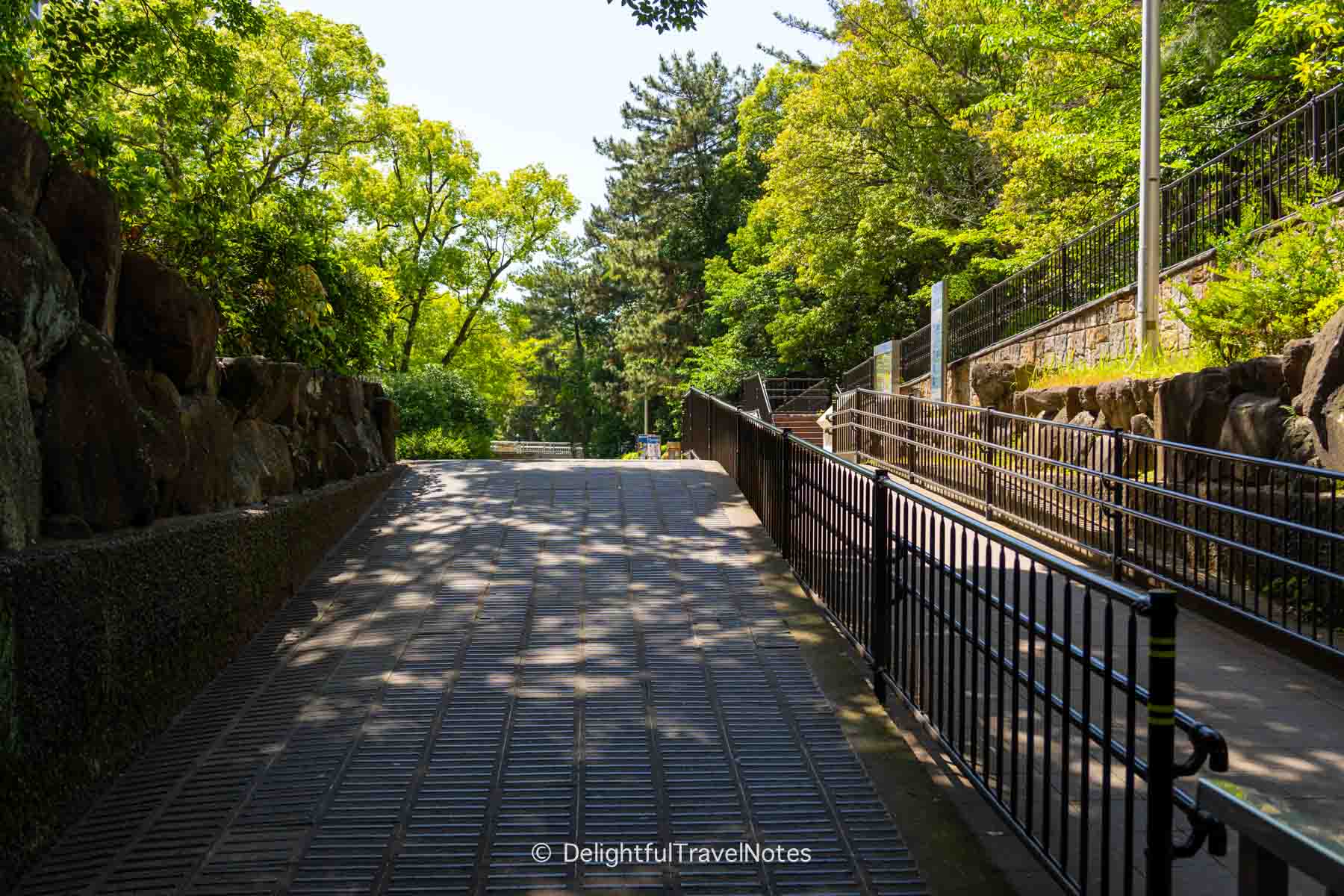
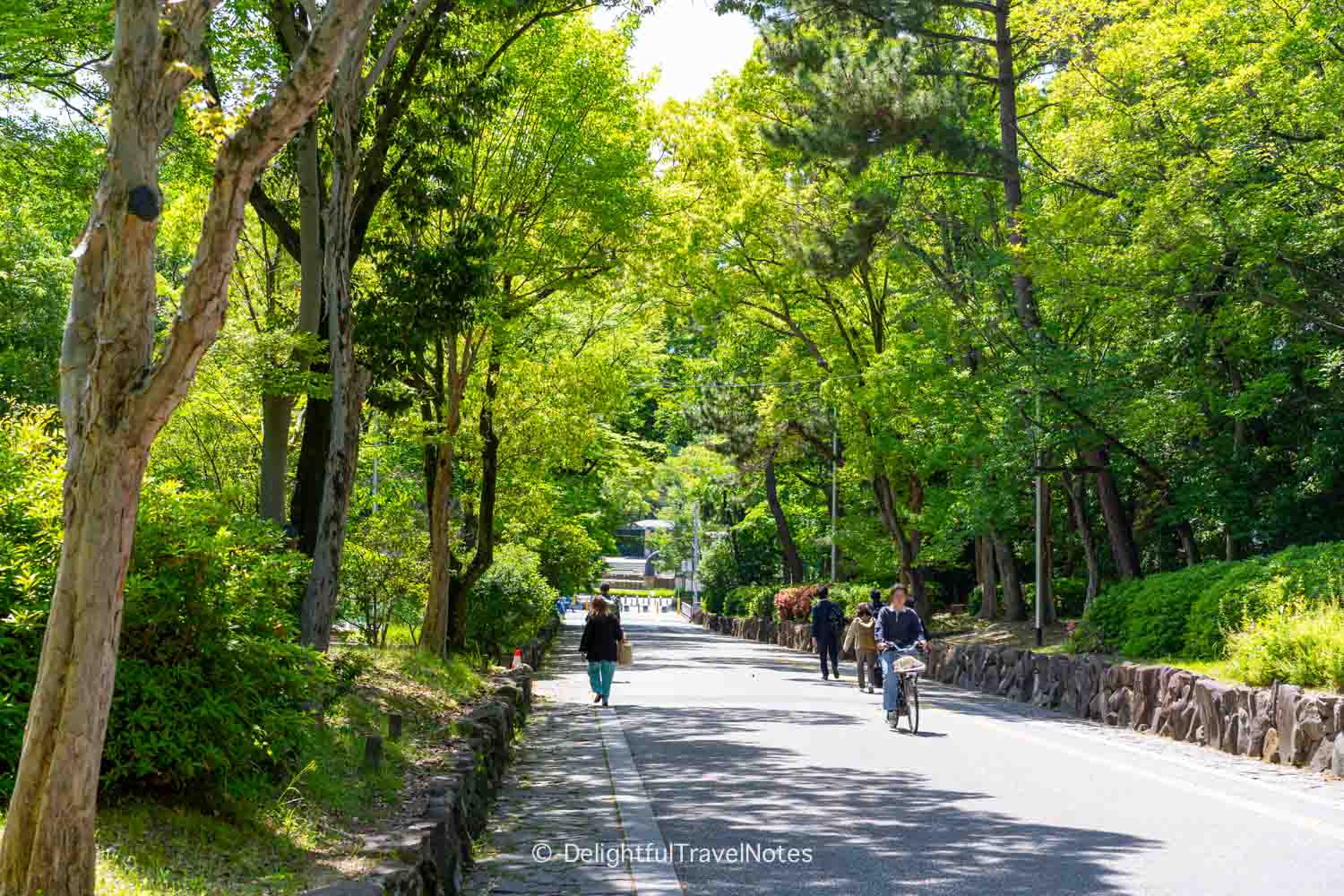
Hattori Ryokuchi Park is a very large and neat local park which has flower gardens, walking and cycling paths, sports facilities, playgrounds and barbecue areas. The Open-Air Museum of Old Japanese Farm Houses is a major attraction within the park. Both the park and museum have a relaxing and quiet atmosphere, so if you want to take a break from touristy crowded places, this place may not disappoint you.
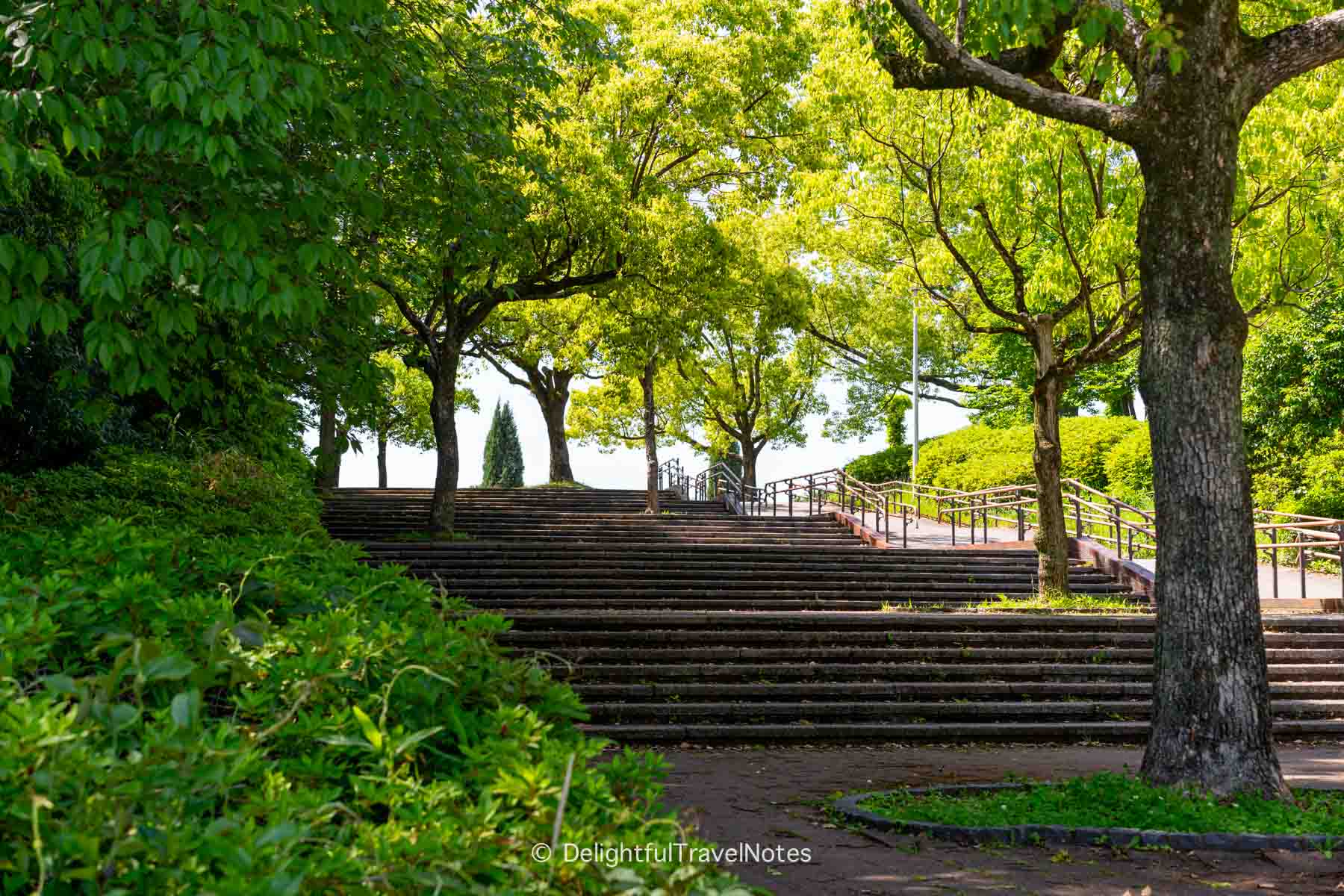
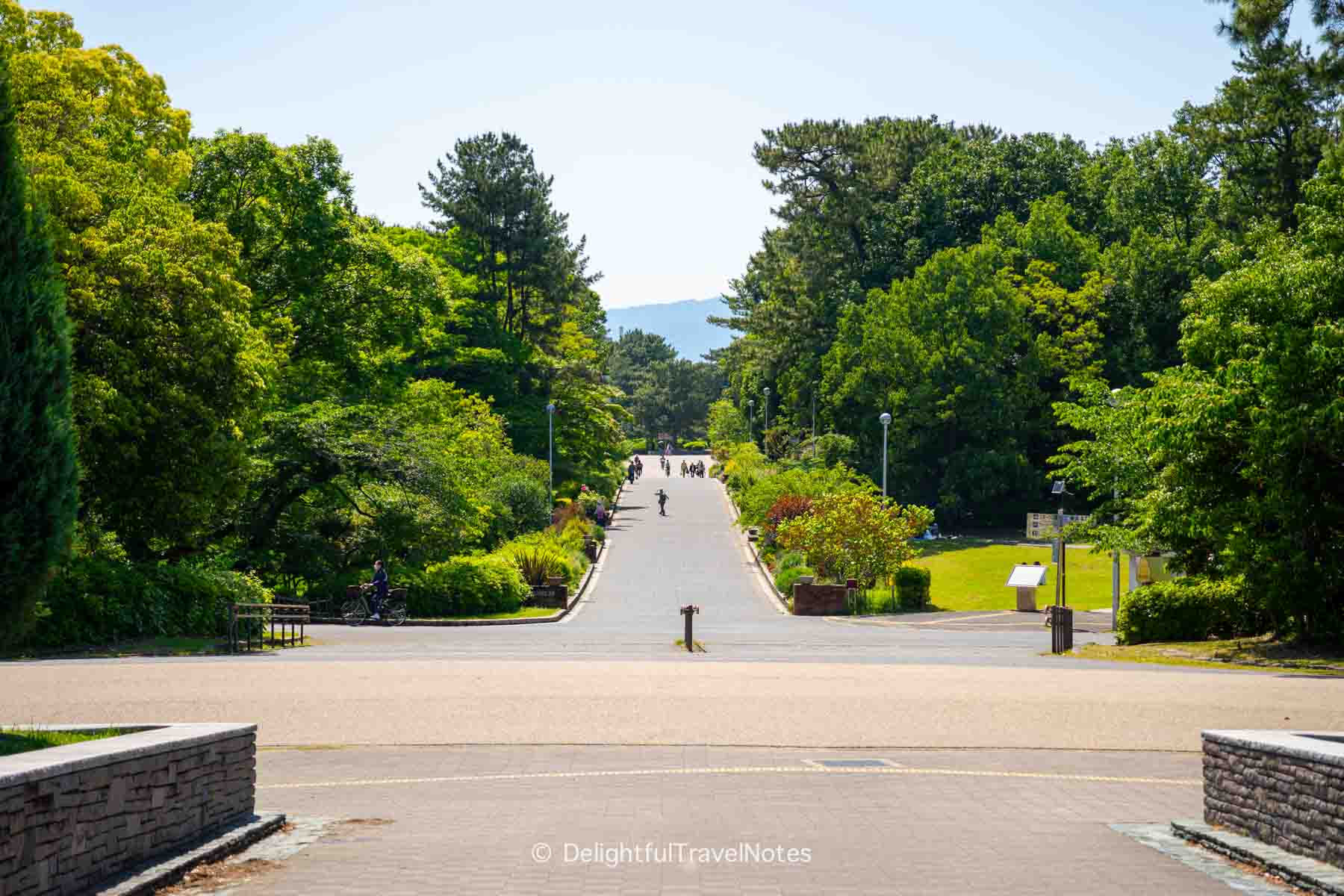
Highlights Of The Museum
The setting inside the Open-Air Museum of Old Japanese Farmhouses is quite serene and picturesque. Eleven farmhouses are scattered throughout the expansive grounds amidst lush greenery.
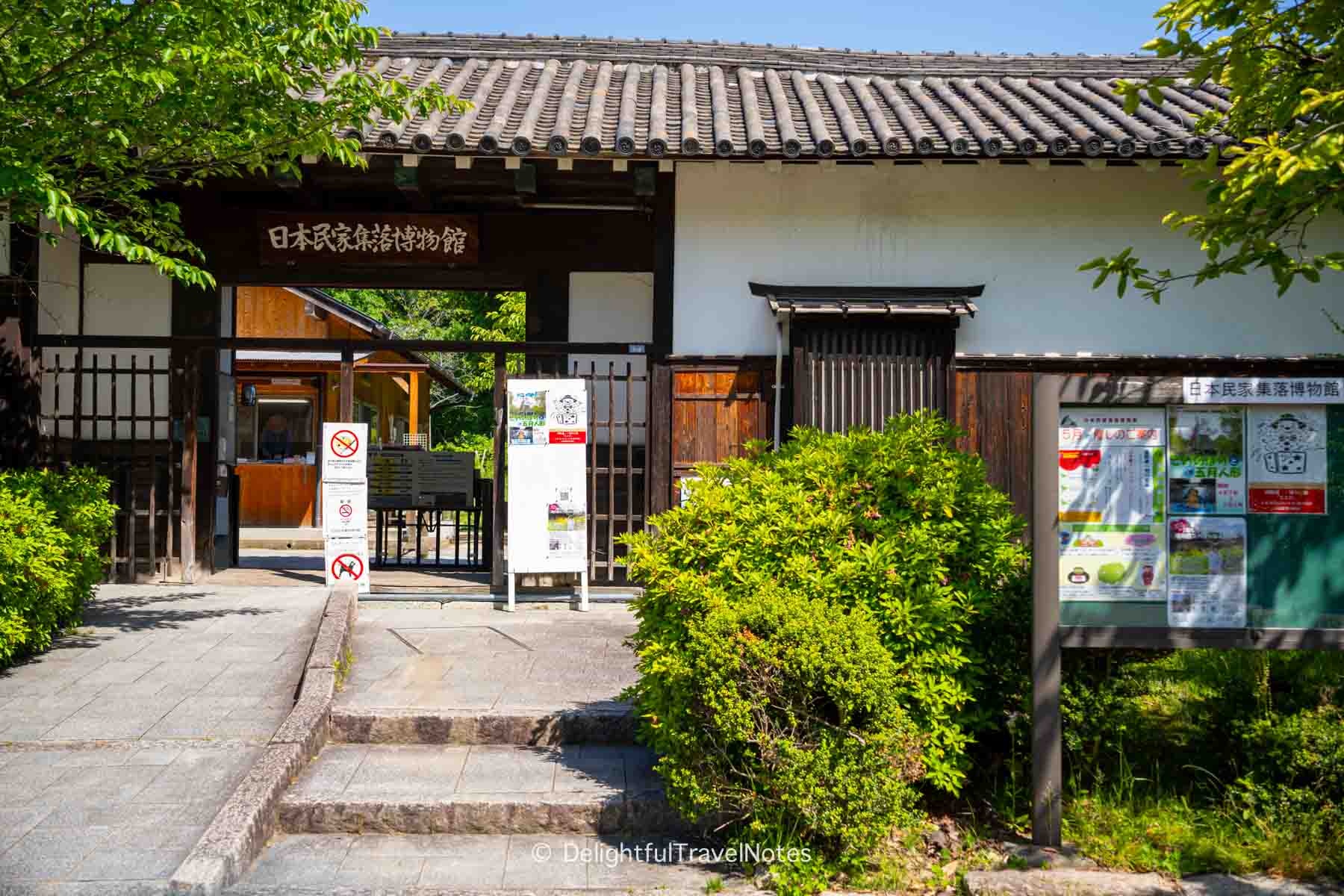
Meandering pathways led us through clusters of trees and open fields, creating a natural, park-like atmosphere. There are seasonal flowers and plants, such as ground orchids and maple trees. You will also see several large bamboo groves rustle gently in the wind, adding to the tranquility. Bamboo groves are a pretty popular sight in Japan, not just in Arashiyama!
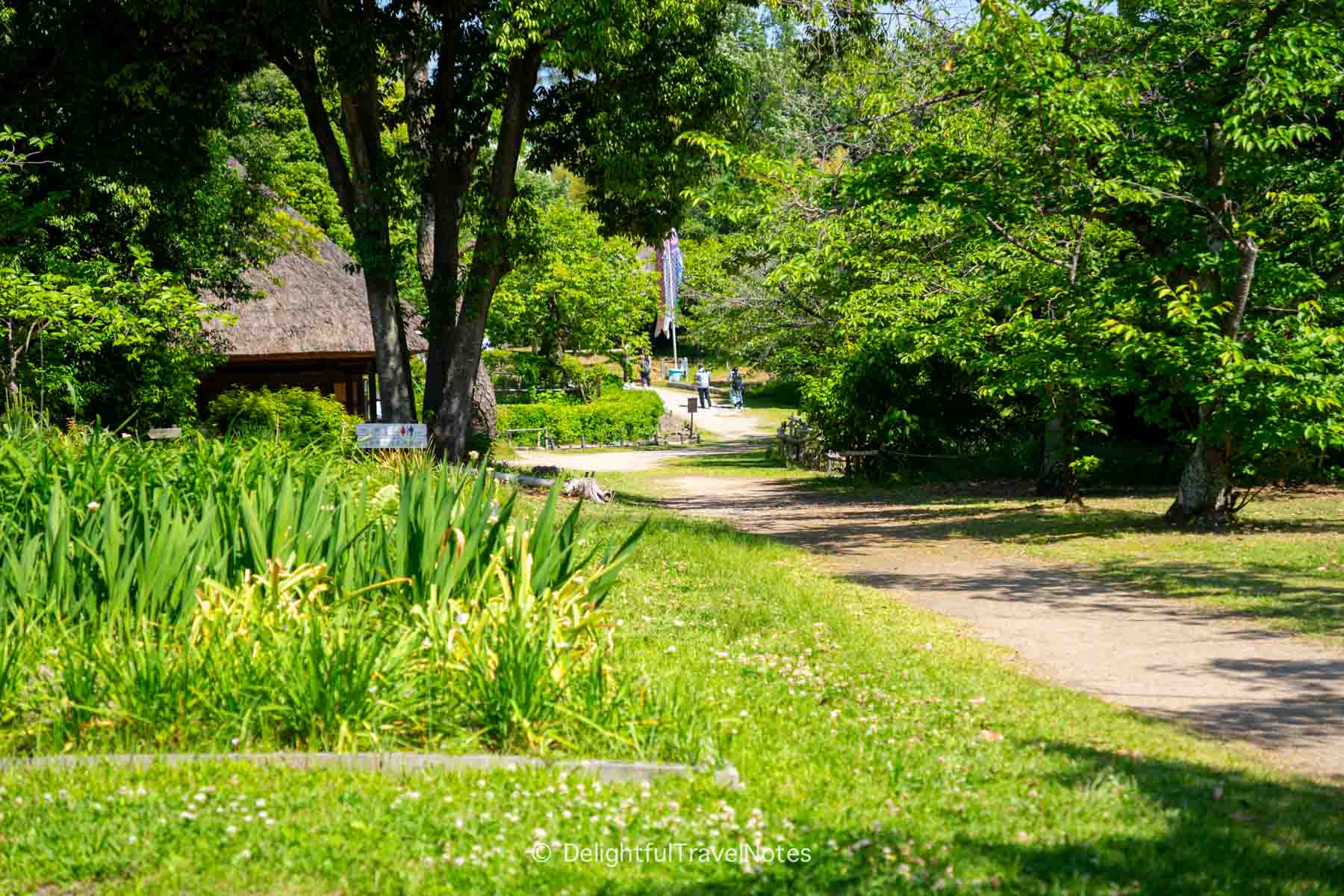
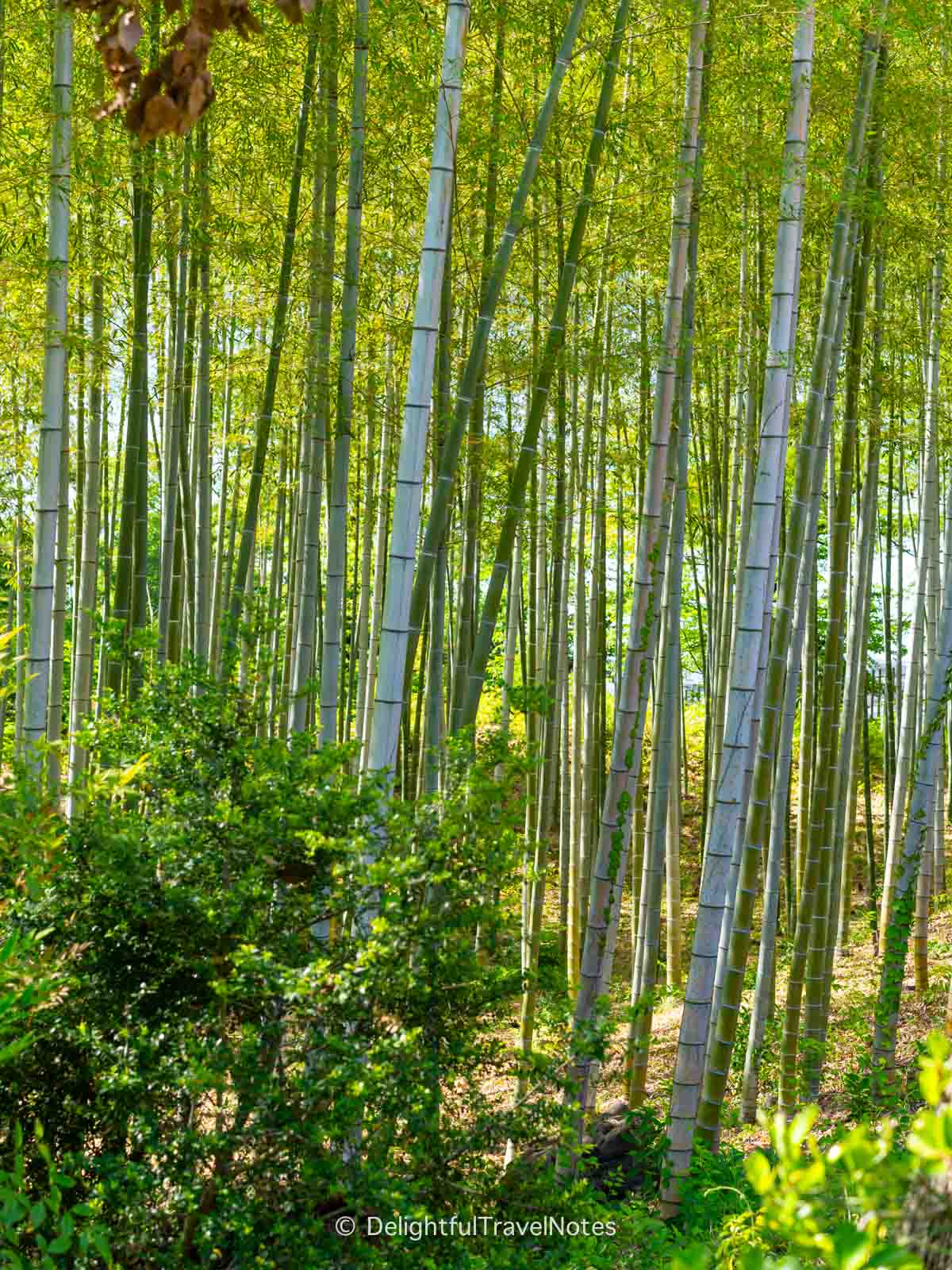
The traditional Japanese farmhouses in the museum were built during the Edo period (17th-19th century) in various regions of Japan. They have been relocated, restored and preserved, giving visitors opportunities to explore historical rural architecture. As the houses originated from different areas with different climates, cultures, and customs, they have distinct styles and characteristics reflective of their localities. We found that very interesting.
For example, the farmhouse below was originally built in a mountainous area with deep snowfall in Nagano. To withstand the harsh winter conditions, it features thickly thatched walls, a unique characteristic designed to provide insulation and protection against the elements.
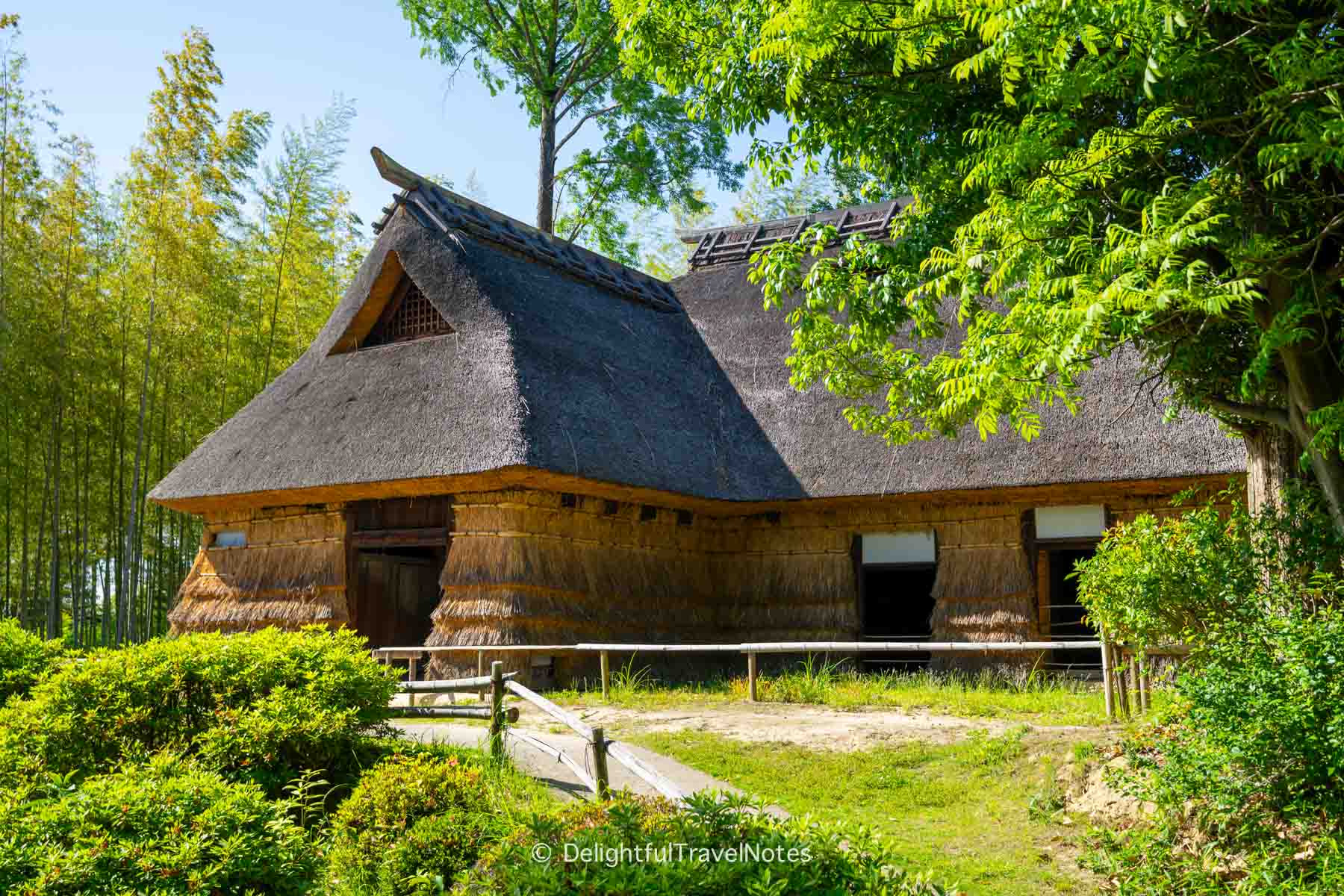
The following farmhouse with weathered exterior from Nara has a narrow style since its was located in a village within a valley. In front of this farmhouse is an open green lawn bordered by tall trees. The sunlight filtering through the leaves created a beautiful pattern of light and shadow (called komorebi) on the grass. We couldn’t help standing there for a moment because of how photogenic the scene was.
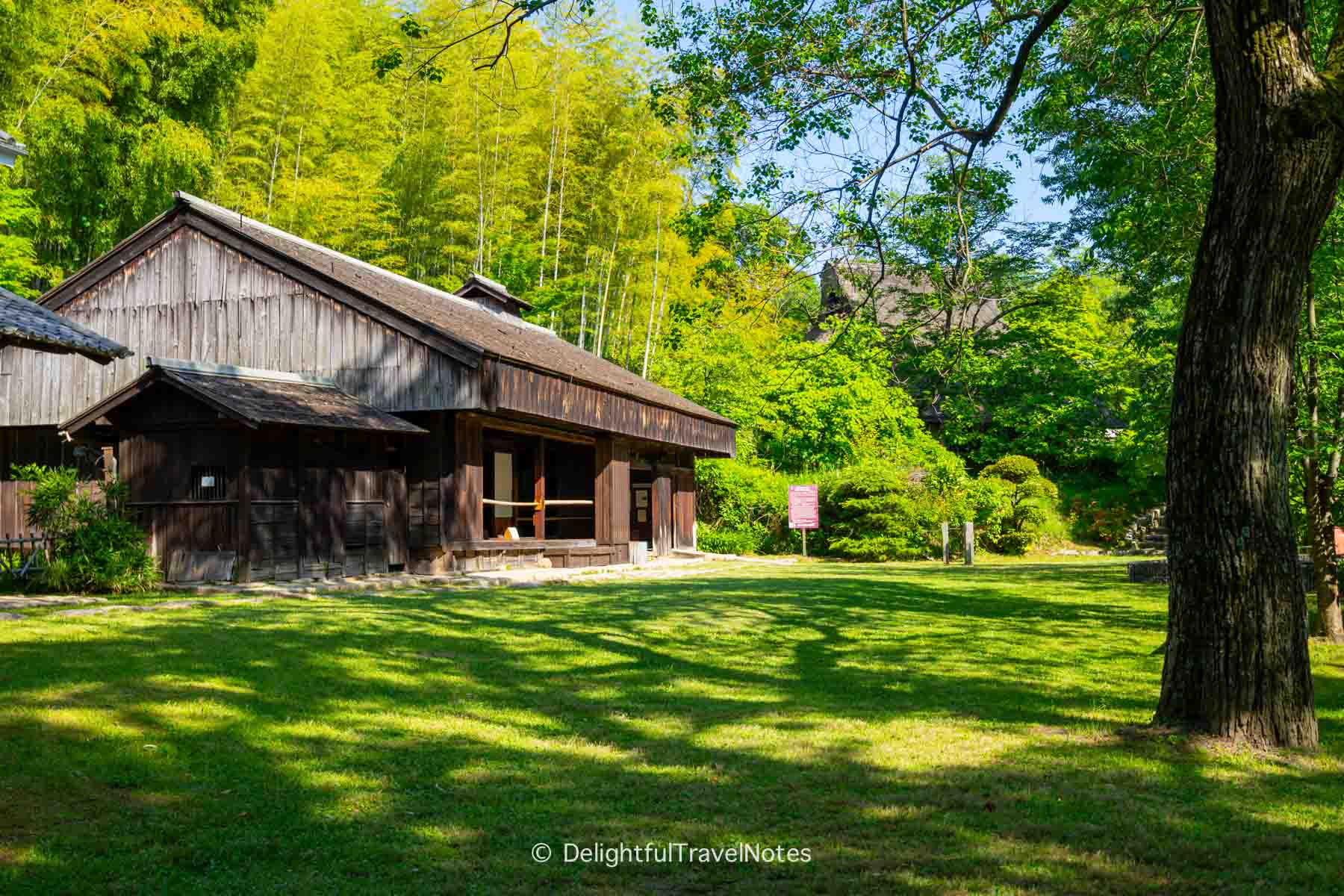
And of course, there is a farmhouse from Hida-Shirakawa, distinguished by its steep roof that resembles two hands pressed together. You probably have heard of Shirakawa-go, a famous village in Japan (as well as a UNESCO site) with farmhouses built in this style.
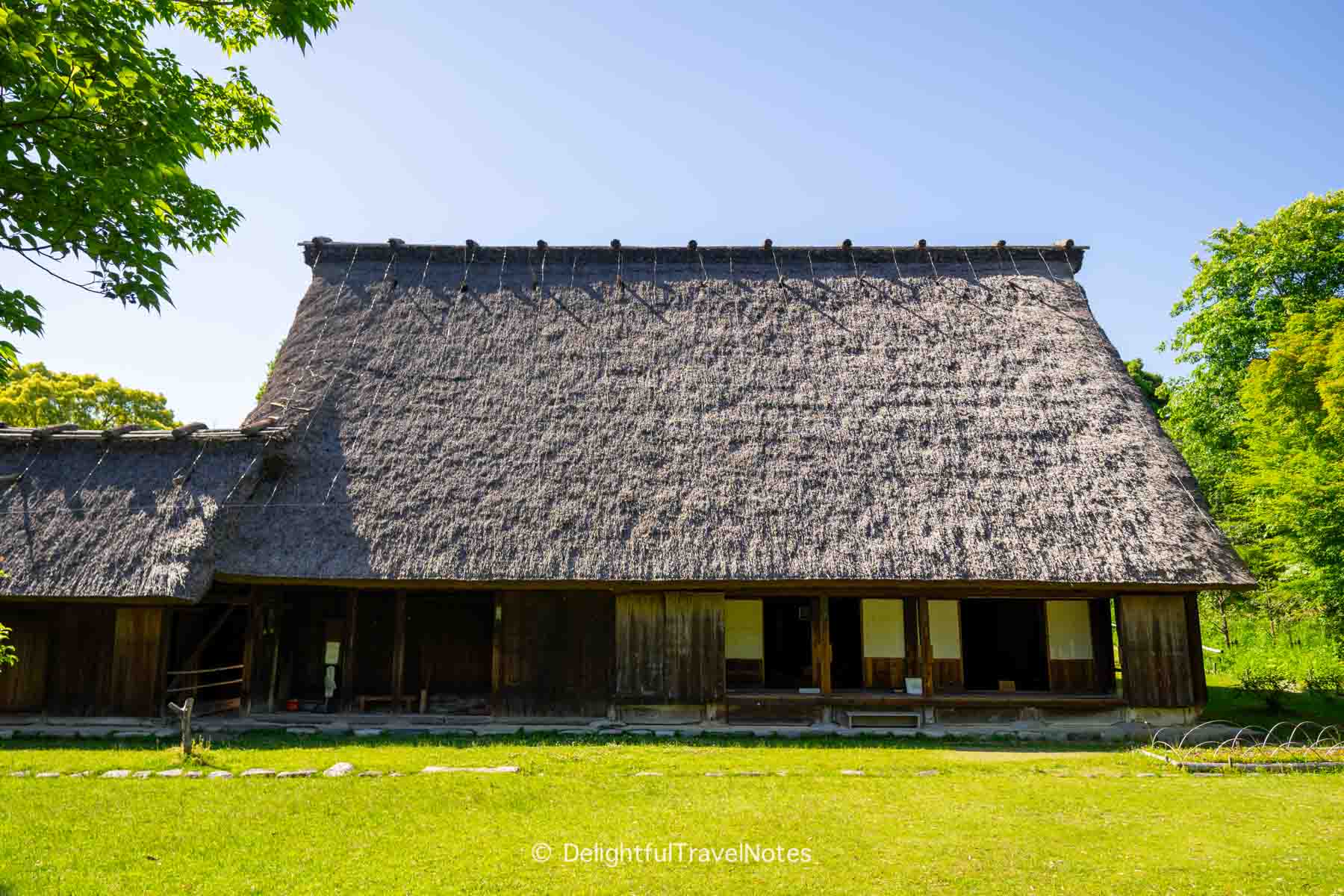
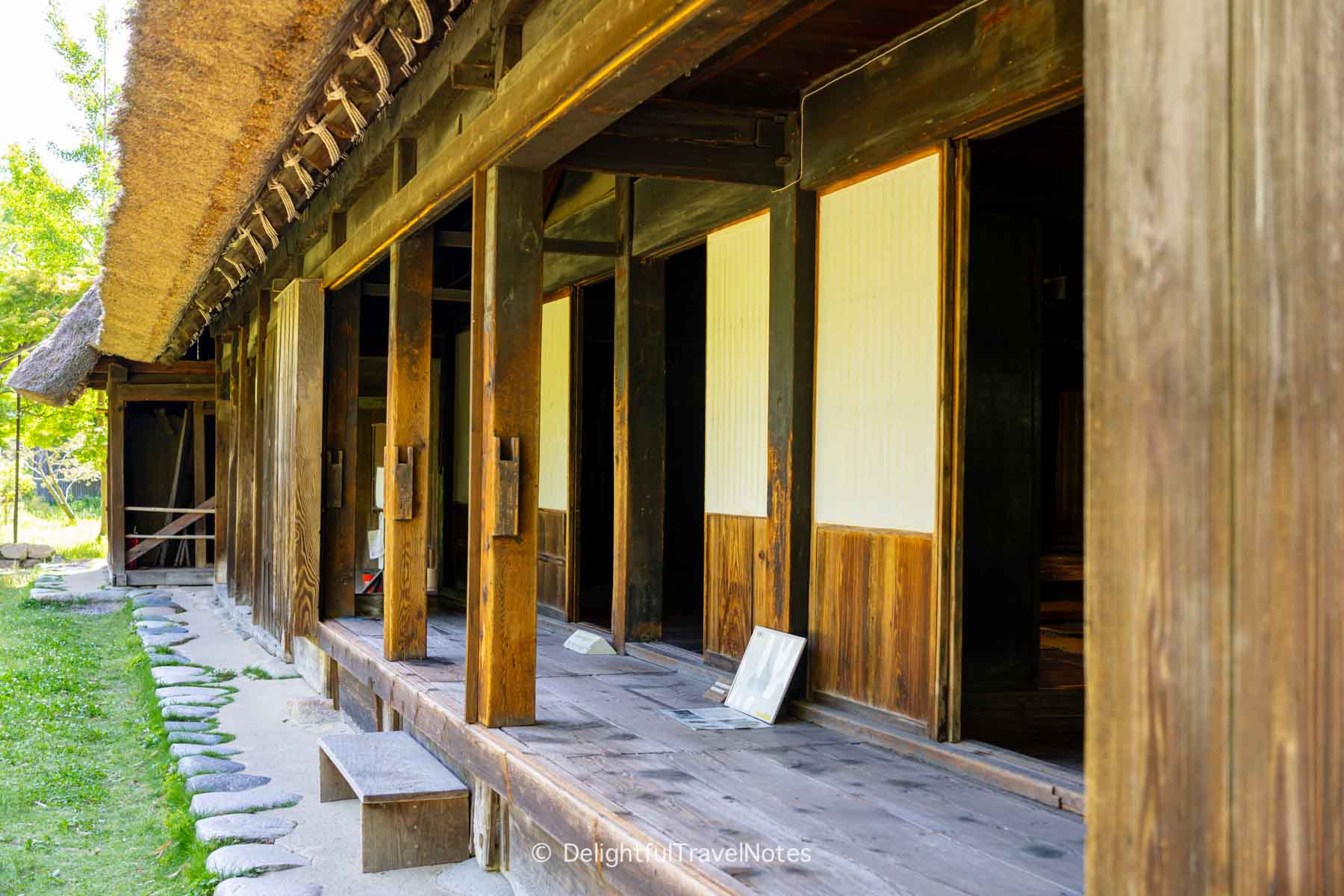
Information boards with English descriptions are placed at each farmhouse. You will also be given English pamphlets at the museum entrance explaining the origin and characteristics of each house.
You can also enter these rural structures to see how people lived in the past. The farmhouses often have simple interior reflecting communal living and shared spaces. A common item is a sunken hearth, which is a square pit in the floor filled with ash and sand. Above it is a metal hook, used for suspending a kettle or pot over the fire for cooking and heating.
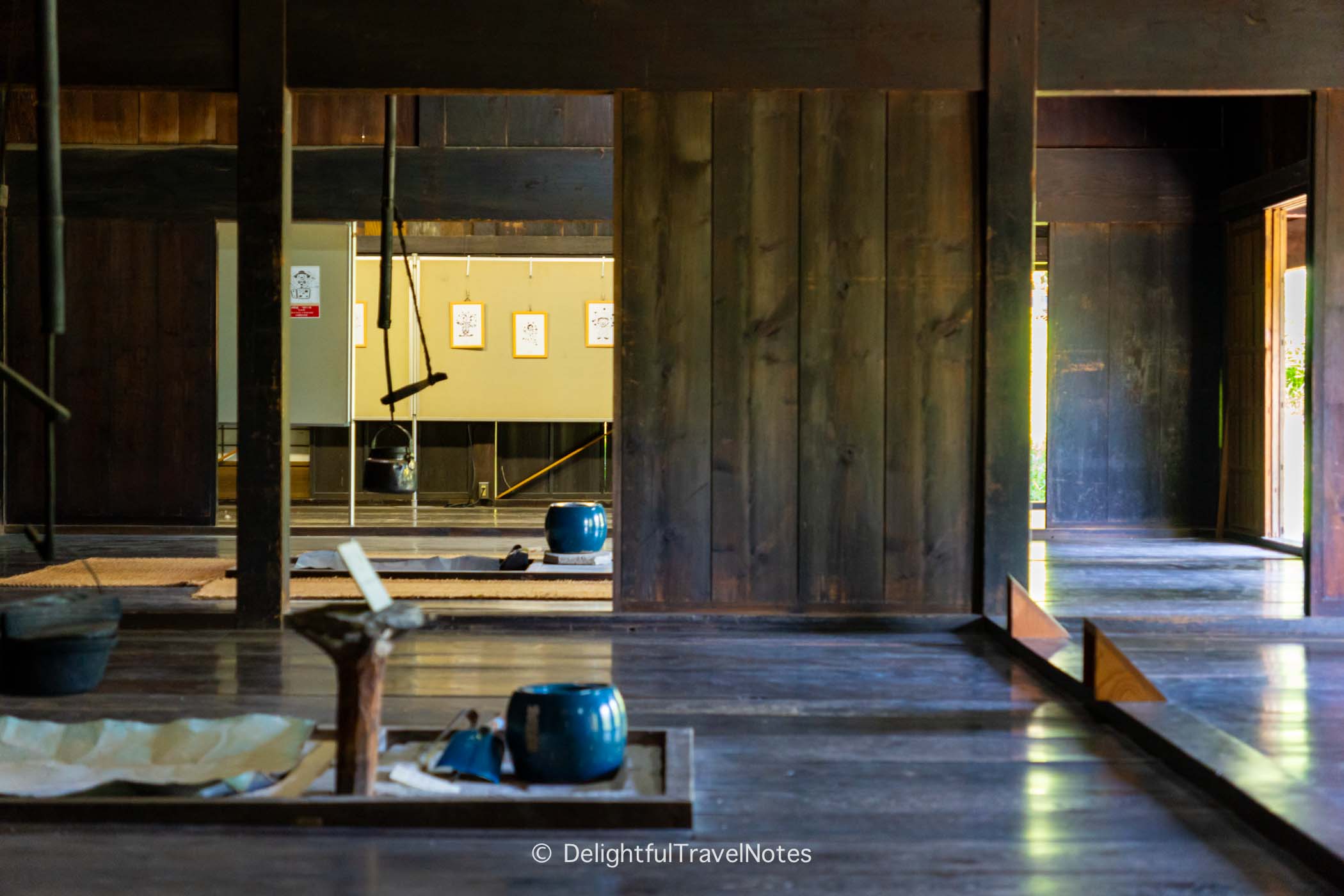
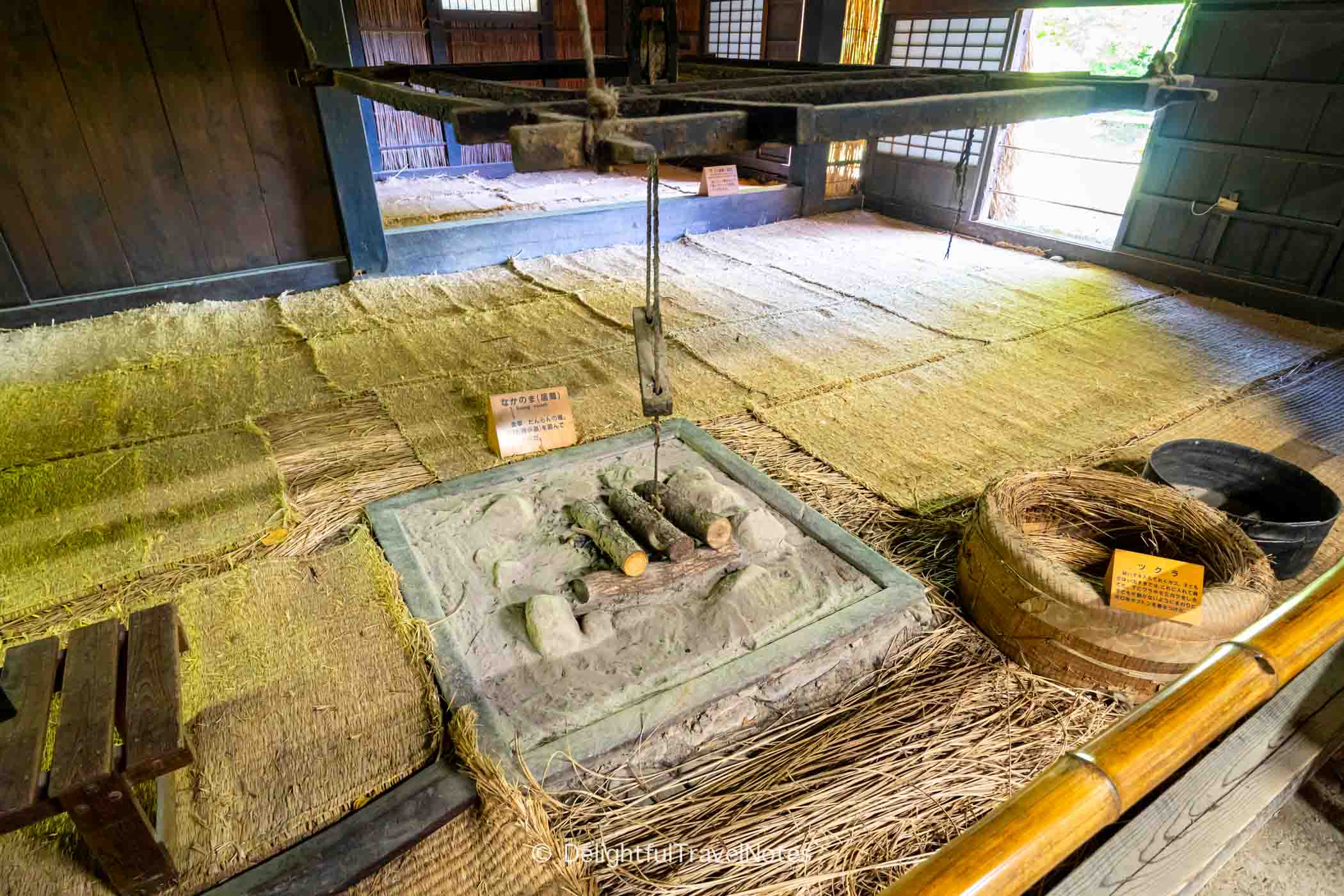
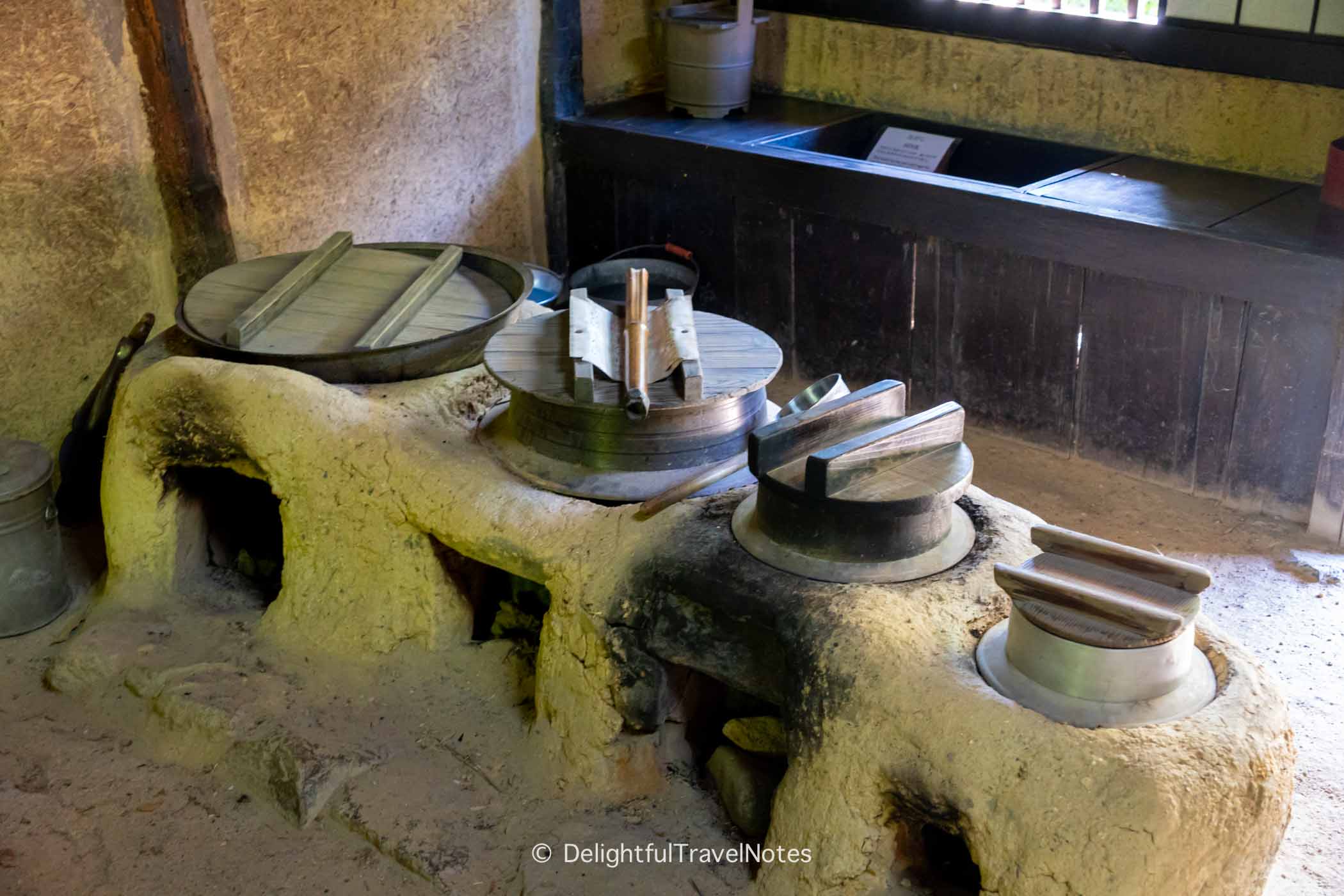
Final Thoughts
The museum doesn’t attract a large number of visitors, so you can take your time touring the outside and inside of the farmhouses. A visit to this museum plus a quick stroll at Hattori Ryokuchi Park may take 2-3 hours.
If your visit is on sunny days, you may want to bring hats, umbrellas and water as there are exposed paths in the park as well as in the museum.
If you found this article helpful, please consider sharing it on Pinterest! Thank you so much!
